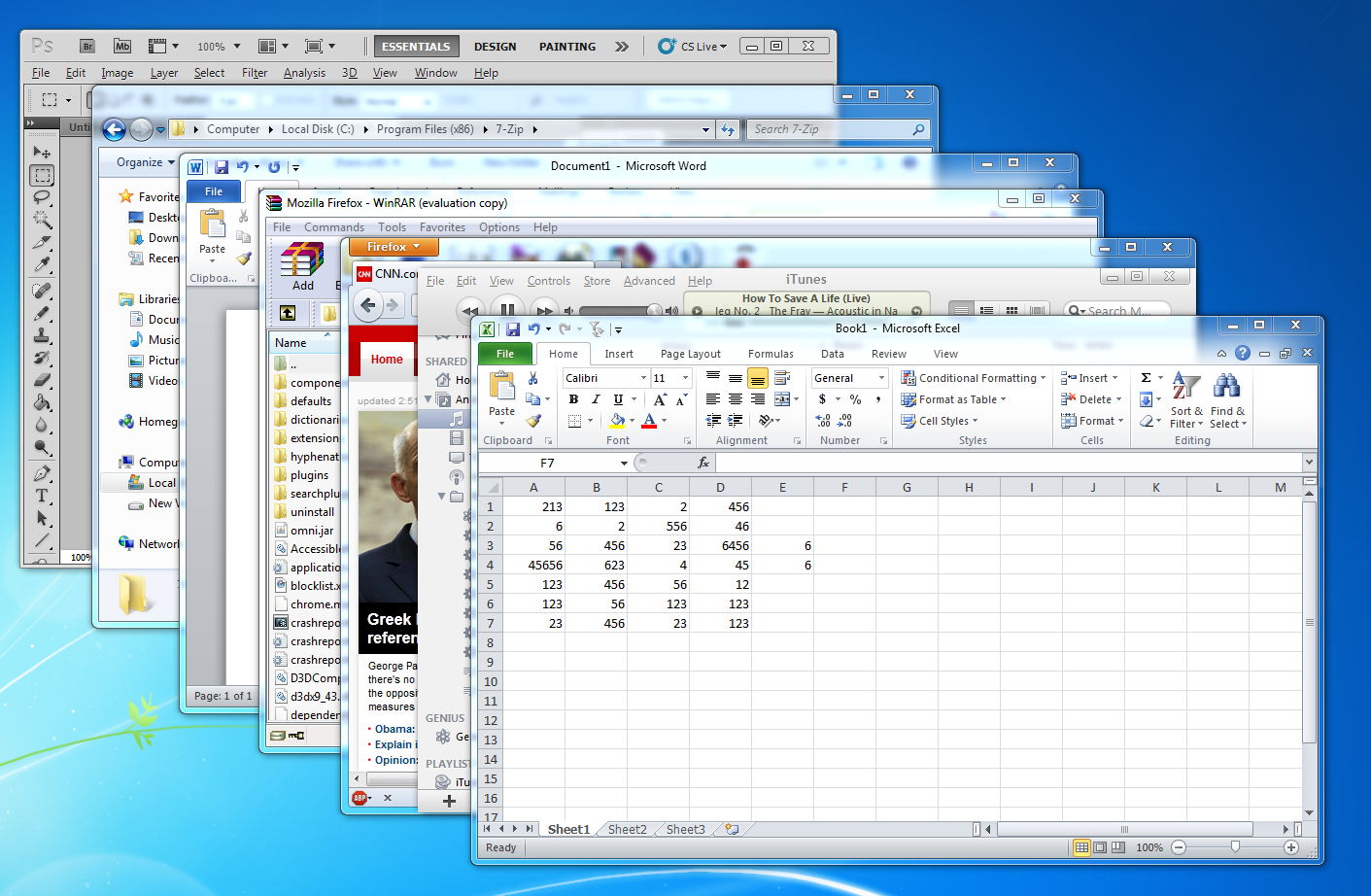SSD Performance In The Office: Nine Applications Benchmarked
Get Tom's Hardware's best news and in-depth reviews, straight to your inbox.
You are now subscribed
Your newsletter sign-up was successful
Dissecting Office Productivity
Twice now, we've examined the storage characteristics of games, bringing us up to a total of six different titles, often with very different results. In case you missed those stories, they're:
Exploring SSD Performance In Battlefield 3, F1 2011, And Rift
SSD Performance In Crysis 2, World Of Warcraft, And Civilization V
Of course, gamers use their computers for other tasks, too. We've seen a number of requests asking that we apply the same type of storage analysis to more common productivity-oriented tasks, and we're here to help try to quantify the impact of an SSD in those applications as well.
If you're still on the fence about even considering an SSD in your next build, check out Should You Upgrade? From A Hard Drive To An SSD. The benchmarks in that piece give you some raw performance data. However, they don't explain why the SSD outperforms the hard drive in one scenario, and then not in the next.
For that, we need to dig deeper under the hood and analyze I/O. SSD reviews typically offer a handful of measurements that try to quantify performance. Those familiar metrics include: sequential writes, sequential reads, random reads, and random writes. If those terms are foreign to you, take a quick minute to check out our break-down in Understanding Storage Performance. Addressing application behavior using those four pillars lets us more accurately identify the storage solution that'll address your needs.
As a continuation of our previous two pieces, today we're examining more pedestrian computing tasks, such as file copying, antivirus scanning, transcoding, compression, and more. The goal, of course, is to give you a better understanding of how these tasks tax your storage subsystem.
Get Tom's Hardware's best news and in-depth reviews, straight to your inbox.
Current page: Dissecting Office Productivity
Next Page Hardware Setup And Benchmarks-
amk-aka-Phantom Nice escape, Tom's... I was wondering "hmm, what kind of torrent will they download, 95% of them are copyright infringement"... nice :D And a good article, too - maybe now I can convince some of our "office-only-don't-need-fancy-hardware" clients to switch to SSDs, esp. considering the HDD price increases.Reply -
iLLz I want an SSD so bad I can taste it. The biggest problem for me is Price and Size. For my system drive I would need at least 500-600 GB and these sized SSDs are way to much money. My Steam folder is like 280 GBs alone. I know alot of you are going to say just put Windows and the most critical apps on the SSD and the rest on my 1TB drive but that defeats the purpose in my book. I want all my apps to benefit from the SSD especially if I am going to invest so much money into it. Here's to hoping the prices come down and fast!Reply -
richboyliang SSD's are meant for holding only your operating system and a few key applications you can't live without. All your data/media should be stored on a regular, large hard disk.Reply -
phamhlam Unless you are working with huge files like pictures and videos, there isn't much a need for a huge SSD. A pair or HDD in RAID combine with a SSD can give you even better capacity and speed. I think most consumers are better with a 90-120GB SSD and a nice large HDD. I got an alright 120GB SSD for $120 w/ rebate. A good 120GB SSD cost about $180-$220. Laptops can hold two drive if your replace your dvd drive which most people rarely use. Once you get a SSD, it is hard to go back.Reply -
Proximon Your office is apparently far different that the ones I service :p At least you got a virus scan and MS Word typing in there.Reply
I suppose I can see some inexpensive reliable SSDs in office machines in the near future, mostly to reduce the failures connected with mechanical drives and speed up boot times and installation times.
-
billybobser Office computer, files on server.Reply
SSD not really appropriate.
Unless by office computer you mean where you have the only computer in the office, or files do not need to be shared around the office.
Given the amount of work people do who open large files (where an ssd may be appropriate), they are too small/too expensive to be justified.
Example, large 3d CaD drawings, spend extra money on them loading faster, lose funds for better overall computer (graphics especially). -
neiroatopelcc I've got a C300 in my work pc, and I have to say I'm disappointed. Not by the performance itself, but the overall result. Productivity went DOWN after the upgrade, as the size of the thing simply isn't adequate. You spend more time cleaning up and moving data than you do actually working. And I even had to move all my virtual machines to usb. That didn't exactly speed up anything either. Replacing a 750gb drive with a 120gb ssd simply isn't viable.Reply
I find it ironic that the only place your tiny ssd drives are good enough are in computers where speed isn't important in the first place. Until 320GB ssd's can compete with regular magnetic drives, it isn't an option to upgrade.
Imagine the added cost of upgrading the 2442 registered clients to ssd drives! About half could make do with a 120GB drive, and the rest would need at least 160GB and possibly bigger.
That's an expense you can't possibly gain in productivity.
Replacing sas drives with ssd's might make sense for your database or vmware/hyper-v systems, but it isn't going to make much sense on the majority of workstations.
